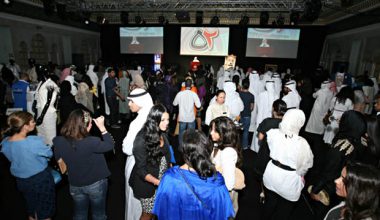Ever since I started The Green Initiative 2 year ago, I've taken a number of exciting challenges, but nothing as exciting as this: for the coming six weeks, I'll leave the country that has been my home for the past ten years (Kuwait) to live in the most greenhouse-gas emitting country in the world – Qatar.
Having just finished high school, I wanted an exciting summer. Living in what is arguably the hardest place for an environmentalist sounded like a deal, and having been to Europe, hiked a mountain along the French-Swiss border, and experienced the sacred shopping trip at Oxford Street in London, it was time for change.

In 2007, Qatar topped the world tables of greenhouse-gas consumption with a staggering 58.01 tonnes per capita. This number is more than double that of the country the country that sits comfortably in third-place at 25.09 tonnes (down from 35 tonnes in 2005), Kuwait. Figures show that the majority of this is due to over-dependence on fossil-fuels, natural gas and the 'liquid-electricity' phenomenon (obtaining water from an energy-intensive desalination process), but surely something else has got to give.
Qatar has been making headlines for the past few years due to their impressive recession-defying economic development, but if our resources suffer at this rate in the name of development, then is the country (and region) really developing? Is economic development the driving force behind this frightening number? How much is marine life suffering with Qatar's recently 'opened' artificial Pearl Island? These are the questions enticed to move and explore.
After a brief delay of my flight due to the marvellous dust, I landed at Doha International Airport. Indeed, it felt like Europe – not only because of the friendliness of the staff, but because it was cold. Really cold. But what struck me was that as I strutted around in my thick wool polar bear hat, is that airport personnel took leisurely strolls, clearly accustomed to this 'weather'.

My fascination with the air-conditioning system of Doha only grew larger as I made my way home. As I observed the beautiful architecture of the buildings which combined the vintage and modern aesthetic, I couldn't help but notice wooden blocks poking out of windows. Apparently, they're split air-conditioning units, and they poke out of the newest buildings in the best areas too.
Why am I fascinated? Because air-conditioning is an energy-intensive phenomenon that has plagued the GCC region for years, and is responsible for over 20% of our electricity usage. Central air-conditioning systems, as I was accustomed to in Kuwait, are 40-60% more efficient that singly unit systems, and thus may account for the wide gap in emissions between Kuwait and Doha. However, why is a country that is developing as rapidly as it is, using such an outdated method for something the people rely on so much? Beats me.
What baffles me even more is that Qatar has topped the world tables since 1990, and thanks to the windows open in the Kyoto protocol, they haven't been set any emission-reduction targets. Although Qataris are considered the richest in the world, Qatar is still considered a 'developing nation' and thus is not subject to emission cuts under climate law.
I cannot deny that there are a number of eco-friendly businesses and government initiatives taking place right now. Qatar even bid to host the 2012 UNFCC conference, where governments decide a global agenda to fight climate change, such as the Kyoto Protocol aforementioned. Two months ago, the conference for the Sport and the Environment opened in Doha, under the auspices of Sheikha Moza. I read through a couple of the catalogues and books from the conference, which were ever so impressive. Too bad the last book I read, the Qatar Sustainability Assessment System's annual report, was a 200-page single-sided book: a symbol of waste. However, billboards promoting green-living are plastered all around the city of Doha. Classic case of two steps forward, one step back.
“Yara Al-Wazir is an environmental and humanitarian activist. She is the founder of The Green Initiative”
Got any tips? Tweet them to @YaraWazir







